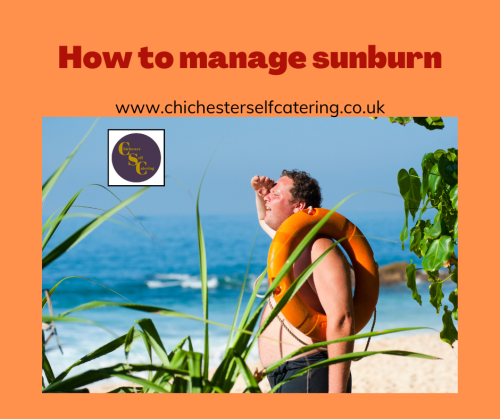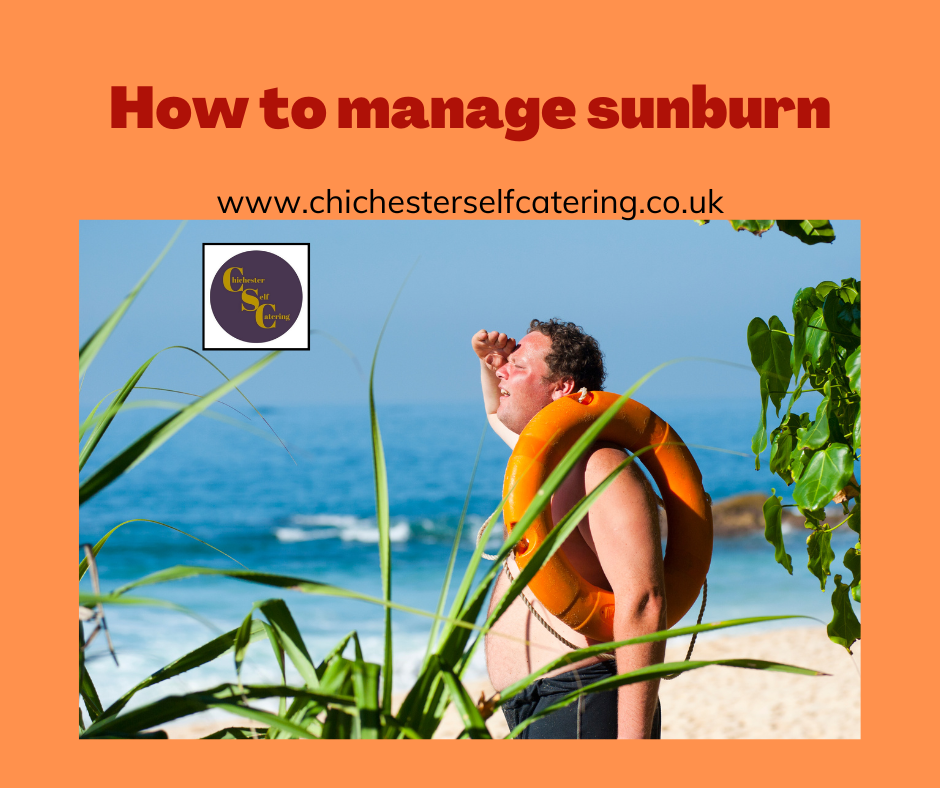7 ways to limit the damage if you get sunburnt this summer
Take care in the sun – we have all seen it – the first rays and the Brits strip off – and forget just how strong the South Coast sunshine is and how beguilingly cooling the beach breezes are!… until it’s too late!
A small amount of UV radiation is essential in the production of vitamin D, however too much exposure to the sun can have serious effects on your skin and eyes.
1. Act quickly and get out of the sun
Cover up the affected areas and stay in the shade until your sunburn has healed. Wear loose cotton clothing that allows your skin to “breathe” over the sunburnt areas.
2. Take over-the-counter pain relief
Analgesia or painkillers can help relieve the pain and reduce inflammation caused by sunburn. Non-steroidal anti-inflammatory drugs such as ibuprofen are ideal and should be continued for a period of at least 48 hours if there are no contraindications. Paracetamol will help with pain, but has little effect on inflammation.
3. Cool the skin
Apply a cool compress to the skin, eg a towel dampened with cool water, for 15 minutes, or take a cool bath or shower. Aim to keep the temperature just below lukewarm. Make sure the shower has a gentle flow of water rather than being on full power. If blisters are starting to develop, then a bath is preferable. Do not rub your skin with a towel, but gently pat it dry when you get out. If you feel like your skin in drying out alot – you can reduce this by applying egg white to the area – it acts like a plaster and protects your skin and helps the healing.
4. Moisturise
After a bath or shower, use an unperfumed cream or lotion to soothe the skin. Repeated applications are necessary to reduce the appearance of peeling and this may need to be continued for several weeks. Aloe vera or soy containing gels or lotions can be beneficial in soothing the skin. Aloe vera not only has a cooling effect on the skin, but also acts as an anti-inflammatory. Be wary of using creams or lotions that contain petroleum, benzocaine, or lidocaine. These can either trap heat in the skin or cause local skin irritation.
5. Stay hydrated
Sunburn can encourage fluid loss through the skin. Drinking plenty of water will prevent dehydration and help your body recover. Alcohol should ideally be avoided during this time, as it will make dehydration worse. A bottle of water by the bed at night will also help.
6. Use of mild steroid cream
Using a weak steroid cream such as 0.5-1% hydro-cortisone for 48 hours may decrease pain and swelling caused by sunburn and speed up the healing process. This is best avoided in small children.
7. Leave blisters alone
Try not to pop blisters, as this can lead to infection and scarring. They will settle by themselves after a few days. In the meantime, treat the skin gently. Dressing in silk can be very beneficial!
“It causes direct damage to DNA, resulting in inflammation and death of skin cells. The risk is higher in equatorial areas or at altitude, particularly in those with fair skin types.
“Sunburn in childhood or adolescence can double the risk of developing melanoma in later life.”
At the Living Elements Clinic – opposite Chichester Self Catering we stock various products including aloe vera gel which can help reduce the fire of sunburn. Or you can buy it online from http://www.livingelements.co.uk/abd/shop/aloe-vera-gnld-p-127.html
I hope you enjoy the sunshine when you come to stay – just be wary of too much!
© Gayle Palmer / Chichester Self Catering 2016

